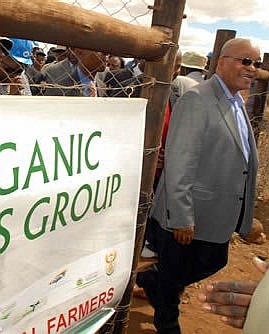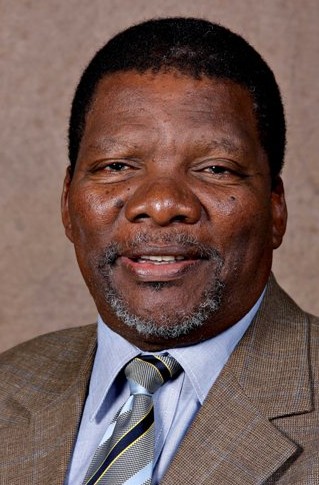|
South Africa Politics | Agriculture - Nutrition | Economy - Development South Africa to restrict land ownership
South Africa's Rural Development and Land Reform Minister Gugile Nkwinti in parliament today revealed new plans of a major overhaul of the country's land restitution and redistribution policy to speed up land reform. The move would however require a change of the constitution.
He further announced that the aims of land reform should be changed from quantitative measures of acreage transferred to qualitative measures. The new principal aims of land reform should be a "de-racialisation of the rural economy," the inclusion of gender, race, and class in land allocation policies and a larger focus on national food security. The current land reform system had placed emphasis on hectares at the expense of development and food security. "This has contributed to declining productivity on farms, decrease in employment in the agricultural sector and deepened poverty in the country side," Mr Nkwinti said. After addressing the South African parliament, Minister Nkwinti was asked on earlier government leaks that land nationalisation was being planned. "We have not spoken at all about any nationalisation of land. So let us kill that debate, it is not there," the Minister told 'SAPA' news agency. The speech by the Land Reform Minister was welcomed by a majority of South African MPs, approving the ministry's budget proposal. The conservative Democratic Alliance (DA) opposition party however held government was only trying to cover up its failure to allocate budget funds to implement the generally favoured land reform. The DA's Mpowele Swathe told MPs he was "concerned about the inadequate budget" allocated land reform. "Poor land claimants pinned their hopes on the budget for the 2010/11 financial year to address outstanding claims," Mr Swathe said. "Unfortunately this insufficient budget will continue to impede progress and dangerously test the patience of land claimants and farmers alike. It is unacceptable to keep people waiting this long for justice to be done." By staff writer © afrol News - Create an e-mail alert for South Africa news - Create an e-mail alert for Politics news - Create an e-mail alert for Agriculture - Nutrition news - Create an e-mail alert for Economy - Development news
On the Afrol News front page now
|
front page
| news
| countries
| archive
| currencies
| news alerts login
| about afrol News
| contact
| advertise
| español
©
afrol News.
Reproducing or buying afrol News' articles.
You can contact us at mail@afrol.com









